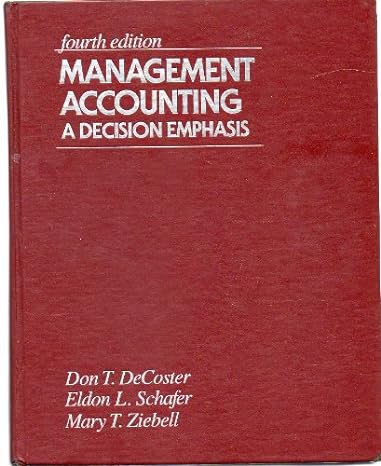Answered step by step
Verified Expert Solution
Question
1 Approved Answer
5. Mr. AB is an individual and employed in a company. He has submitted the following information for the tax year 2016. Compute his taxable
5. Mr. AB is an individual and employed in a company. He has submitted the following information for the tax year 2016. Compute his taxable income and tax liability for the tax year 2016. (Part A) Basic salary per annum Bonus COLA (Cost of Living Allowance) Rs. 700,000 100,000 80,000 Rent free un-furnished accommodation with annual rental value 110,000 Dearness allowance Utilities allowance Leave encashment LFA provided every year Hotel bills paid by the company relating to a pleasure trip 100,000 80,000 48,000 118,000 222,000 Monthly contribution by the employer to the provident fund which is equal to deduction from the employee @ 9% of basic salary. Interest free loan Rs.1,300,000 received from the company 5,250 Company maintained car provided for both official and private purposes, the FMV of the car is Rs.800,000. (Part B) Income from Property: AB rented his house @ Rs. 15,000 per month for the year ended 30-06-2016. Rent received at the beginning of the financial year Mr. AB claimed the following expenditure: Rs. 180,000 Repair and maintenance charges 30,000 Property related taxes 6,000 Collection charges 22,000 Legal charges (including Rs. 10,000 due but not yet paid) 35,000 (Part C) Other Information: Rs. Dividend received (after tax) 8,000 Zakat deducted from dividend 500 Capital gain on private limited company (holding period 13 months) 50,000 Gain on sale of listed co's shares (shares acquired before 1.7.2012) 60,000 Income from winning of a lottery 25,000 (Part D) Deduction at Source: Rs. From salary 3,000 From dividend 1,500 EXTRACT OF TAX RATES FOR SALARIED INDIVIDUAL Sr. Taxable Income No. 1. Upto Rs. 600,000 2. Rs. 600,001 Rs. 1,200,000 0% Rate of Tax 3. Rs. 1,200,001 4. Rs. 1,800,001 - Rs. 1,800,000 Rs. 2,500,000 5. Rs.2,500,001 - Rs. 3,500,000 6. Rs.3,500,001 Rs. 5,000,000 5% of the amount exceeding Rs.600,000 Rs. 30,000+ 10% of the amount exceeding Rs. 1,200,000 Rs. 90,000+15% of the amount exceeding Rs. 1,800,000 Rs. 195,000+ 17.5% of the amount exceeding Rs. 2,500,000 Rs. 370,000+ 20% of the amount exceeding Rs. Page 4 of 6 7. Rs.5,000,001 - Rs. 8,000,000 8. Rs.8,000,001 Rs. 12,000,000 9. Rs.12,000,001 - Rs. 30,000,000 10. Rs.30,000,001 ----- Rs. 50,000,000 11. Rs.50,000,001 ----- Rs. 75,000,000 12. OVER Rs.75,000,000 3,500,000. Rs. 670,000+22.5% of the amount exceeding Rs. 5,000,000. Rs. 1,345,000+25% of the amount exceeding Rs. 8,000,000. Rs. 2.345,000+27.5% of the amount exceeding Rs. 12,000,000. Rs. 7.295,000+30% of the amount exceeding Rs. 30,000,000. Rs. 13,295,000+32.5% of the amount exceeding Rs. 50,000,000. Rs. 21,420,000+35% of the amount exceeding Rs. 75,000,000
Step by Step Solution
There are 3 Steps involved in it
Step: 1

Get Instant Access to Expert-Tailored Solutions
See step-by-step solutions with expert insights and AI powered tools for academic success
Step: 2

Step: 3

Ace Your Homework with AI
Get the answers you need in no time with our AI-driven, step-by-step assistance
Get Started


